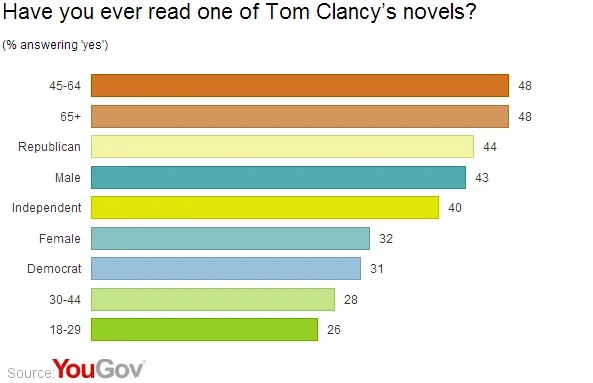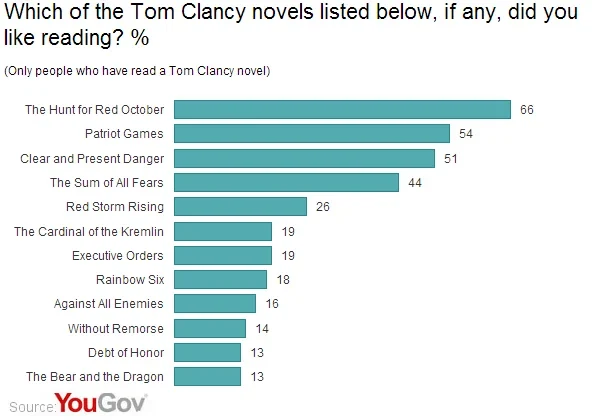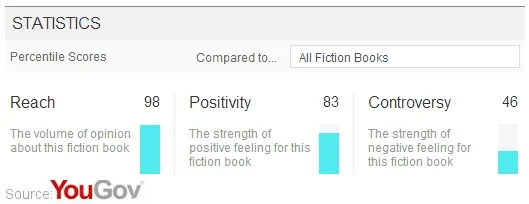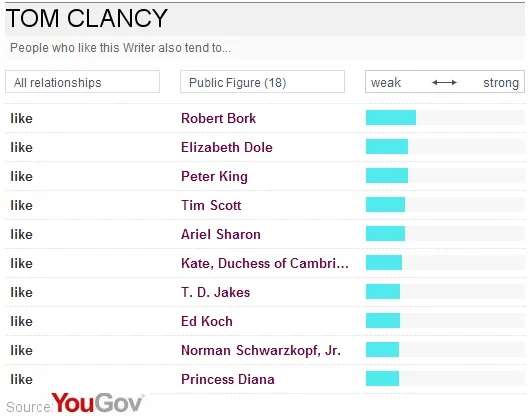Over a third of Americans have read a Tom Clancy book, and 'The Hunt for Red October' is the most commonly enjoyed of his books.
Tom Clancy, who died aged 66 in Baltimore on Tuesday evening, was one of the most widely-read authors in modern America. It is estimated that - globally - around 100 million of his books have been printed, 17 of which reached the top of the New York Times bestsellers list. His first novel, 'The Hunt for Red October', told the story of a Soviet submarine captain defecting to the United States at the height of the Cold War. Published in 1984, the book received a boost when then-President Ronald Reagan said that the book was his 'kind of yarn'.
The latest research from YouGov shows that 38% of Americans have read a book by the writer. The people most likely to have read a Tom Clancy book are people over the age of 45 (48%), Republicans (44%) and men (43%). The least like people to have read any book by Tom Clancy are people under the age of 45 and Democrats (31%).

The most popular book among the public was Tom Clancy's breakout hit and first novel, 'The Hunt for Red October', which 66% of people who had ever read a Tom Clancy book said that they enjoyed. 'Patriot Games' is a close second with 54%, while 'Clear and Present Danger' (51%), together with 'The Sum of All Fears' (44%) are also particularly popular.

'The Hunt for Red October' is one of the most popular books on YouGov's Opigram system. Out of the more than 2,000 books that people have rated or expressed an opinion on, The Hunt for Red October is more popular than 83% of all fiction books. The book has also been rated by more people than 98% of books, making it one of the most widely read.

Tom Clancy was known throughout his career as being a conservative Republican, and the political preferences of his fans on YouGov's Opigram system show that - compared to the public as a whole, and regular readers in general - fans of Tom Clancy are more likely to be Republican than not. Some of the favorite public figures of Tom Clancy fans include Reagan-era conservatives such as Robert Bork, alongside more modern prominent conservatives such as current U.S. Representative Peter King.









